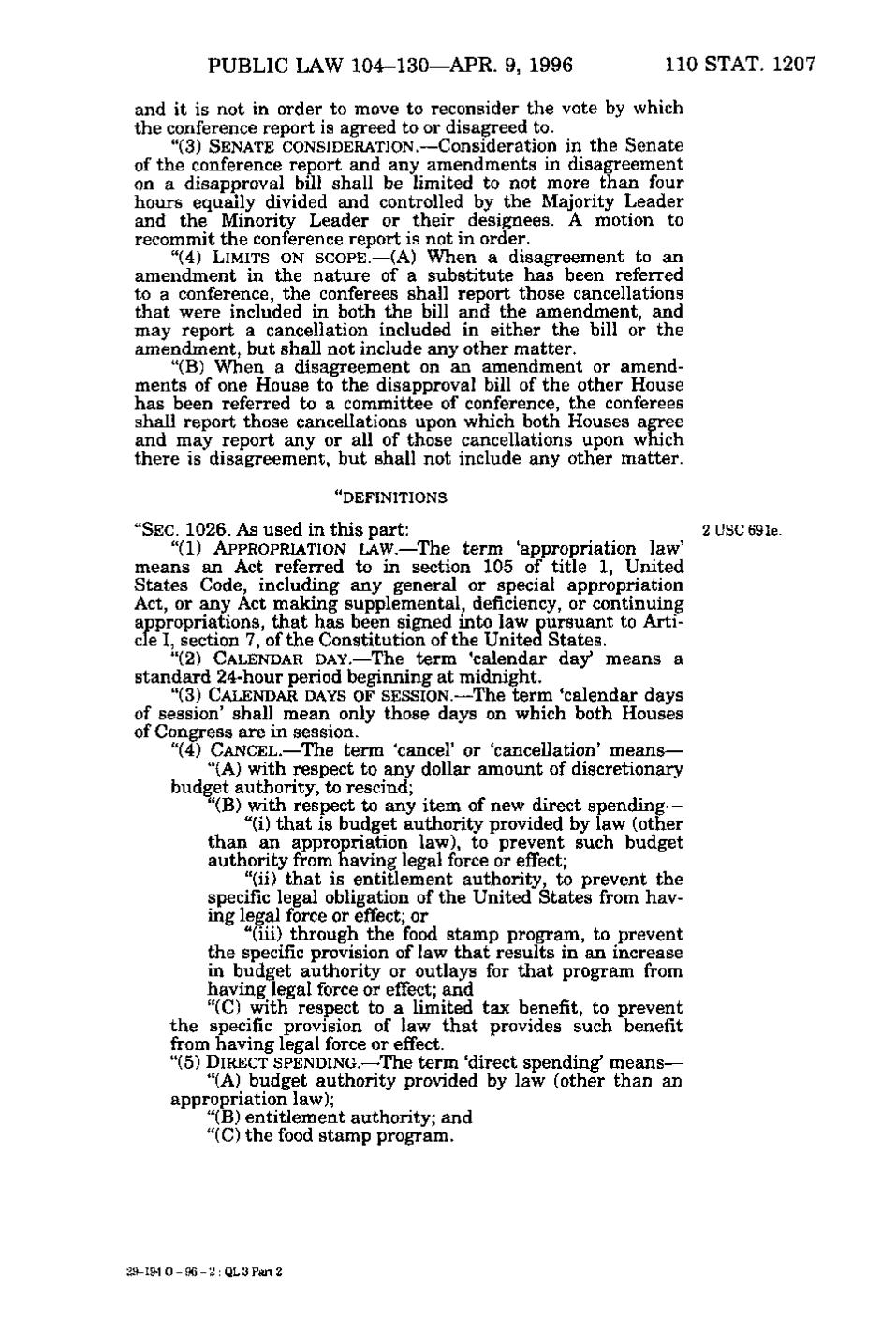PUBLIC LAW 104-130—APR. 9, 1996 110 STAT. 1207 and it is not in order to move to reconsider the vote by which the conference report is agreed to or disagreed to. "(3) SENATE CONSIDERATION.—Consideration in the Senate of the conference report and any amendments in disagreement on a disapproval bill shall be limited to not more than four hours equally divided and controlled by the Majority Leader and the Minority Leader or their designees. A motion to recommit the conference report is not in order. "(4) LIMITS ON SCOPE. —(A) When a disagreement to an amendment in the nature of a substitute has been referred to a conference, the conferees shall report those cancellations that were included in both the bill and the amendment, and may report a cancellation included in either the bill or the amendment, but shall not include any other matter. "(B) When a disagreement on an amendment or amendments of one House to the disapproval bill of the other House has been referred to a committee of conference, the conferees shall report those cancellations upon which both Houses agree and may report any or all of those cancellations upon which there is disagreement, but shall not include any other matter. "DEFINITIONS "SEC. 1026. As used in this part: 2 USC 69le. "(1) APPROPRIATION LAW.—The term 'appropriation law' means an Act referred to in section 105 of title 1, United States Code, including any general or special appropriation Act, or any Act making supplemental, deficiency, or continuing appropriations, that has been signed into law pursuant to Article I, section 7, of the Constitution of the United States. "(2) CALENDAR DAY.— The term 'calendar day* means a standard 24-hour period beginning at midnight. "(3) CALENDAR DAYS OF SESSION.— The term 'calendar days of session' shall mean only those days on which both Houses of Congress are in session. "(4) CANCEL.— The term 'cancel' or 'cancellation' means— "(A) with respect to any dollar amount of discretionary budget authority, to rescind; "(B) with respect to any item of new direct spending— "(i) that is budget authority provided by law (other than an appropriation law), to prevent such budget authority from having legal force or effect; "(ii) that is entitlement authority, to prevent the specific legal obligation of the United States from having legal force or effect; or "(iii) through the food stamp program, to prevent the specific provision of law that results in an increase in budget authority or outlays for that program from having legal force or effect; and "(C) with respect to a limited tax benefit, to prevent the specific provision of law that provides such benefit from having legal force or effect. "(5) DIRECT SPENDING. —The term 'direct spending" means— "(A) budget authority provided by law (other than an appropriation law); "(B) entitlement authority; and "(C) the food stamp program. i-2:QL3Part2
�
